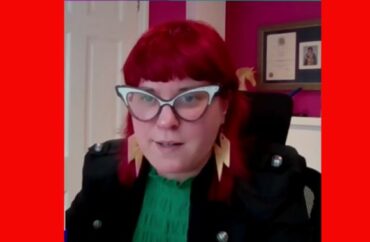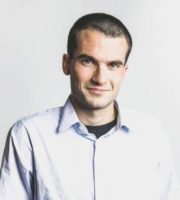
OPINION: Don’t say ‘breastfeeding, but ‘human milk feeding’
Midwives should avoid saying “gynecologist” in order to be more “inclusive,” according to a recent academic paper.
Not because it sounds like “guy,” but because the word comes from the Greek for woman. Instead, say “reproductive health specialist.”
The same scholars also say men can give birth.
Other problematic words include “breastfeeding” and “breastmilk.”
Instead, midwives should say “human milk feeding,” “human milk provision,” and “milk from the feeding parent.”
The new language guide comes from Sally Pezaro (pictured), a professor and midwife who works at Coventry University in the United Kingdom.
Twelve other authors, including a “queer doula,” contributed to the paper titled, “Gender inclusive language in midwifery and perinatal services: A guide and argument for justice.”
It is all about moving away from “sexed language,” meaning accurate words that describe the fact that every single person to ever give birth in the history of the world was a woman. For example, the guide says not to use “women,” but instead “service users,” as if they are clients downloading software onto their computers.
The authors begin their paper by making a confusing claim.
They write:
The notion of childbearing having a necessary or logical belonging within the nuclear two-parent family initiated by heterosexual couples whose gender has a normative relationship with their sex assigned at birth is a recent development in our human history, and one still inconsistently observed around the globe. Indeed, community and extended family are often as, if not more important.
Pezaro did not respond to an email on Wednesday that asked for clarification on what she meant. The authors cited an entire book as their source.
The paper contradicts itself in several places.
For one, the authors believe men can give birth.
But their “inclusive” language guide says to avoid saying “men/fathers/dads,” and instead say “non-gestational parents.” But if men can give birth, then it is offensive to assume they are the “non-gestational” parent, according to the authors’ logic. It makes sense if you don’t think about it.
MORE: Michigan State has 140+ employees working on 222 DEI items
And what about the term “midwife”? (Credit Micaiah Bilger for that joke).
Much of the paper reads like a typical gender studies essay.
Here is one section explaining why “sexed language,” (i.e. biologically accurate words) should not be used:
Gender non-conforming individuals are substituted for the true threat—the patriarchal structures that oppress multiple marginalized groups. This oppression becomes clear as we demonstrate the role of colonialism in the next section. We also foreground decolonial, intersectional feminism, and reproductive justice, which are key to the implementation of professional policy and practice in meeting the ethical imperative for gender-inclusive language in perinatal care.
Using “inclusive” language is also how midwives can fight “colonialism,” according to the paper, written by British authors, attempting to impose their standards on everyone else.
“If midwifery is indeed a feminist profession, it, therefore, follows that it should reject any re-affirmation of a European patriarchal sex binary rooted in colonialism, and fight for reproductive justice to the benefit of all who birth, the majority of whom are cisgender women,” the authors write.
There is a sliver of truth, finally.
Not only are a “majority” of people who give birth women, but they are all, in fact, women. If this is what midwives are about, parents would be wise to choose a gynecologist/reproductive health specialist instead.
MORE: Princeton course affirms only women can give birth
IMAGE: Maternity & Midwifery Forum/YouTube






Please join the conversation about our stories on Facebook, Twitter, Instagram, Reddit, MeWe, Rumble, Gab, Minds and Gettr.